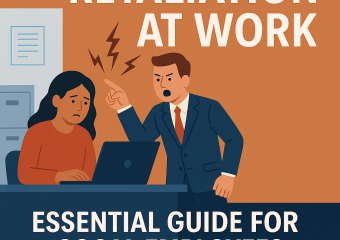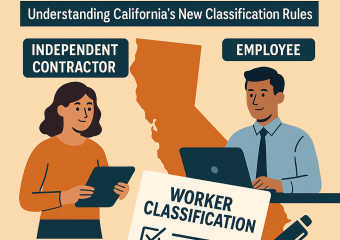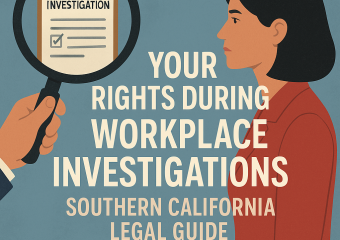California Sick Leave Laws: What Workers in LA, OC, and IE Need to Know
California sick leave laws provide vital protections for workers, ensuring they have the ability to take paid time off when they are ill or need to care for family members. These laws are particularly important for employees in bustling regions like Los Angeles (LA), Orange County (OC), and the Inland Empire (IE), where the workforce is diverse and many hold jobs in industries demanding physical presence. Understanding these laws can help workers assert their rights and employers maintain compliance, promoting healthier workplaces and communities.
Understanding California’s Statewide Sick Leave Law
California’s Healthy Workplaces, Healthy Families Act of 2014 established the baseline for sick leave statewide. Under this law:
- Employees accrue a minimum of 1 hour of paid sick leave for every 30 hours worked.
- Employers with 26 or more employees must provide at least 24 hours (or three days) of paid sick leave annually.
- Smaller employers (fewer than 26 employees) are still required to provide paid sick leave, though the minimum amount varies based on company size and local laws.
- Employers can either allow accrual of sick days over time or provide an upfront lump sum of sick leave each year.
- Unused sick leave accrues and carries over to the following year, but employers may limit use to 24 hours or three days annually.
These protections apply to nearly all employees, including part-time and temporary workers, giving broad coverage throughout regions like LA, OC, and the IE.
How Local Sick Leave Ordinances Affect Workers in LA, OC, and the IE
While the state law provides a foundation, many cities and counties have enacted additional sick leave ordinances that give workers even greater benefits. It’s important for workers to be aware of the specific rules in their locality.
Los Angeles
The Los Angeles Paid Sick Leave Ordinance enhances protections beyond the state level. Here:
- Sick leave accrues at one hour per 30 hours worked, aligning with state rules.
- However, employers with 25 or more employees are required to provide up to 48 hours (6 days) of paid sick leave annually, exceeding the state minimum.
- Part-time, temporary, and seasonal employees are covered.
- Sick leave can be used for a broad range of reasons including illness, preventive care, and caring for a family member.
This ordinance applies to employees working at least two hours per week within the city limits, making it widely applicable in LA’s diverse work environment.
Orange County
Orange County does not have a countywide sick leave ordinance, but many cities within OC, such as Santa Ana and Anaheim, have adopted their own regulations. Santa Ana, for instance:
- Requires employers to provide one hour of paid sick leave per 30 hours worked.
- Sets minimum annual paid sick days at three.
- Covers a wide range of family members for care, similar to state standards.
In cities without local ordinances, the California Healthy Workplaces, Healthy Families Act remains the governing law, ensuring baseline protections.
Inland Empire (Riverside and San Bernardino Counties)
Inland Empire workers are primarily governed by state sick leave laws, as few cities have adopted additional ordinances. However, some cities like San Bernardino have local rules that align closely with state standards, requiring:
- Accrual of sick leave at 1 hour per 30 hours worked.
- Ability to carry over unused leave.
- Specific protections against retaliation for sick leave use.
Because the IE includes many agricultural and service industry workers, understanding these protections is critical as these sectors often face issues with paid leave access.
Rights and Responsibilities Under California Sick Leave Laws
Whether governed by state or local standards, workers in LA, OC, and the IE must know their rights and responsibilities:
- Use of Sick Leave: Sick leave can be used for an employee’s own medical condition, preventive care appointments, or caring for a family member including children, parents, spouses, domestic partners, grandparents, grandchildren, and siblings.
- Notice Requirements: Employees should provide reasonable advance notice of use when foreseeable. For emergencies, notice should be given as soon as practicable.
- Protection from Retaliation: It is illegal for employers to retaliate, discipline, or terminate employees for using accrued sick leave.
- Recordkeeping: Employers must keep records of hours worked and paid sick days accrued and used for at least three years.
- Use and Payout: Sick leave is typically paid at the employee’s regular rate, but unused leave generally does not have to be paid out on separation unless company policy states otherwise.
Practical Tips for Workers in LA, OC, and the IE
- Review your employer’s sick leave policy: Ask for written information about how sick leave accrual and use is handled.
- Keep track of your hours worked and sick leave accrued: This helps ensure you receive your full entitlements.
- Communicate clearly and promptly when you need to take leave to avoid misunderstandings.
- Seek help if you face retaliation: Contact local labor boards or legal assistance organizations if your rights are violated.
Conclusion
California offers some of the strongest sick leave protections in the country, but local nuances in LA, Orange County, and the Inland Empire mean workers should stay informed about the specific rules applying to them. By understanding these sick leave laws, employees can better care for their health and the health of their families without fear of losing pay or facing retaliation. As the workplace continues to evolve, these policies remain key to promoting a more compassionate and resilient workforce throughout Southern California.




